The Tyco International spin off of their medical division was completed a couple weeks ago. The new company, Covidien has about $10 billion in sales. With a stable of mature health care technology, Covidien is looking to acquisitions to fuel growth.
It is now investing aggressively in research and development in its
core devices business and would consider acquisitions in the $60
million to $250 million range, [Richard] Meelia [president and CEO of Covidien] said, as it looks to expand its
offerings of surgical, respiratory and energy-based devices.
It expects ultimately to boost R&D spending in devices to 5
percent to 6 percent of sales from 2.7 percent today, Meelia said.
Like many mature medical device vendors, the company "which makes surgical instruments, ventilators and syringes, struggled
with sluggish revenue growth and declining profitability due to
underinvestment."
Many medical device vendors face the challenges of mature undifferentiated core technologies (and resulting products) and changing market requirements that demand workflow automation beyond the operation of the medical device itself. For example, there has been a market need for a patient worn wireless SpO2 monitor (Covidien's Nellcor product line) for years, yet the company chose to milk the cash cow of sensors and disposables rather than investing in next generation products. Ditto for ventilators, where the transition of ventilated patients from critical care units to general wards has created new surveillance and alarm notification requirements. It is also notable that Covidien's medical devices do not provide connectivity (sorry, serial ports don't count).
Perhaps Covidien will acquire a software company to develop a common connectivity platform for all their devices. Such a strategy would not likely generate incremental revenue, but could certainly drive medium and long term organic growth in their existing product lines. Pictured right is a Nellcor SpO2 monitor made "portable" with the addition of a wireless radio wart.


Recent Comments